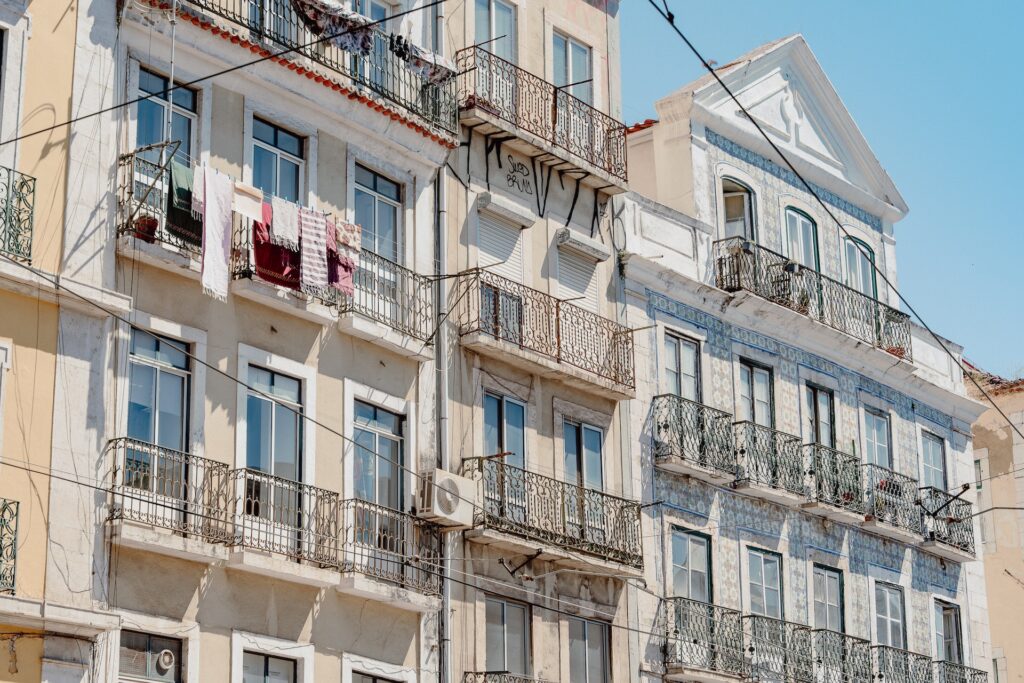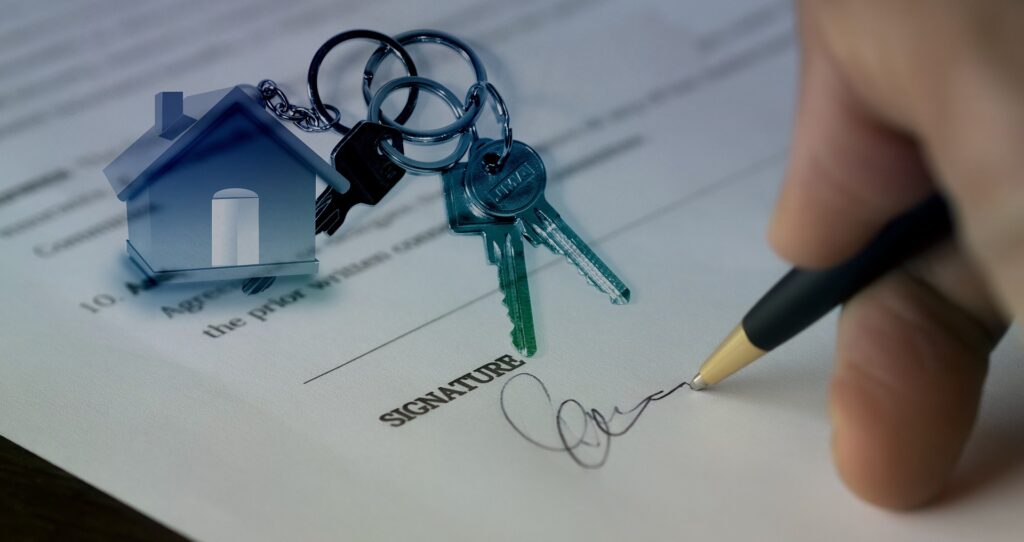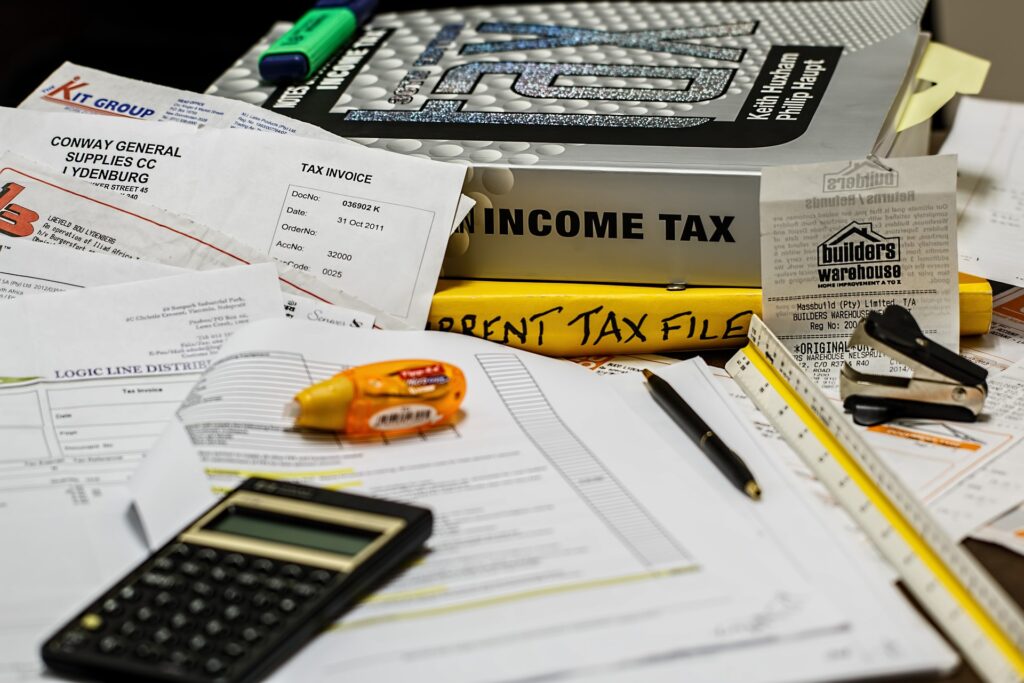Portugal’s property market has been steadily attracting investors from around the world, and for good reason. With its picturesque landscapes, vibrant cities, and a growing tourism industry, the country offers a wealth of opportunities for those looking to invest in real estate. Among the strategies gaining popularity is ‘buy-to-let’ – a smart and dynamic approach that allows investors to tap into Portugal’s flourishing rental market.
In this article, we delve into the ins and outs of the buy-to-let strategy in Portugal, offering insights, tips, and key considerations to help you make informed decisions and unlock the full potential of this investment avenue.
What is buy-to-let?
A buy-to-let investment, also know as buy-to-rent, is a strategy where individuals purchase residential real estate properties with the primary intention of renting them out to tenants, rather than for personal use.
The goal of buy-to-let investors is to generate rental income from the properties, cover related expenses such as mortgage payments and maintenance, and potentially benefit from property appreciation over time.

Choosing your buy-to-let investment
Property Selection
When it comes to selecting a property for a buy-to-let investment, understanding your target tenant is of utmost importance. The location you choose can significantly impact the success of your investment, and your management approach should align with your choice.
First and foremost, knowing the type of tenant you want to attract is crucial. Different tenants have distinct preferences when it comes to location and property type. Are you aiming for families, young professionals, students, or perhaps vacationers? Each demographic comes with its own set of needs and desires, and this will ultimately guide your property selection.
Moreover, your proximity to the property is a key consideration. If you plan to manage the property yourself, living nearby can be immensely beneficial. It allows you to respond quickly to tenant needs and oversee maintenance effectively. On the other hand, if you intend to hire an agent or property manager to handle day-to-day operations, you have the flexibility to explore areas with potentially higher returns, even if they are farther away.
Buy-to-let Mortgage
When venturing into a buy-to-let investment and considering a buy-to-let mortgage, several critical factors come into play, shaping your borrowing capacity and repayment terms.
First and foremost, the amount you can borrow hinges significantly on the expected rental income from the property. Lenders typically assess your ability to cover mortgage payments based on this income, and the higher the expected income, the more you can potentially borrow. However, it’s important to note that higher buy-to-let mortgages often come with higher interest rates, impacting the overall cost of borrowing.
Moreover, the down payment requirement is a key consideration, especially for non-resident investors. Typically ranging from 25% to 30%, this down payment represents a substantial initial investment. The remainder can be borrowed through the mortgage. It’s crucial to ensure you have adequate funds not only for the down payment but also to cover associated taxes and fees.
When it comes to interest rates, banks offer both fixed and variable options. Fixed rates provide stability as your interest rate remains constant regardless of market fluctuations, making it easier to budget. However, fixed rates often come with higher initial interest rates compared to variable rates, which can change over time.
Additionally, the maximum age for borrowing is a factor to consider. In general, banks extend mortgages until the borrower is around 70 years old. However, some institutions may offer extensions, allowing borrowers to be up to 75 or even 80 years old when the mortgage matures. This flexibility can be valuable when planning your long-term investment strategy.

Managing your buy-to-let investment
Property manager and agent fees
When it comes to managing a buy-to-let property, you have a critical decision to make: whether to take on property management responsibilities yourself or enlist the services of a professional property management company. Each option comes with its own set of advantages and considerations.
If you choose to manage the property yourself, you’ll be responsible for tasks such as finding and screening tenants, handling maintenance and repairs, collecting rent, and addressing tenant concerns. This hands-on approach provides you with more control over your investment, but it also demands a significant amount of time, effort, and expertise.
On the other hand, opting for professional property management can offer convenience and peace of mind. Property management companies specialize in handling all aspects of property management, allowing you to enjoy a more passive investment experience. They excel in tenant screening, property maintenance, rent collection, and responding to tenant inquiries and issues promptly.
However, it’s essential to understand the costs associated with professional property management. Property management fees typically range from 15% to 20% of the rental income, depending on the level of service you require. These fees cover the expertise and services provided by the management company and can vary based on factors such as property size, location, and the extent of services requested.
Expected rental yield
The expected rental yield is a critical financial metric that property investors use to assess the potential return on their investment. It is typically expressed as a percentage and represents the annual rental income a property is expected to generate as a proportion of its purchase price or property value.
To calculate the expected rental yield, you can use the following formula:
Expected Rental Yield (%) = (Annual Rental Income / Property Purchase Price) x 100
Here’s a breakdown of the components:
Annual Rental Income: This is the total income you anticipate receiving from renting out the property for a year.
Property Purchase Price or Value: This is the cost of acquiring the property. It includes not only the purchase price but also any additional costs such as taxes, fees, and renovation expenses.
For example, if you purchase a property for €250,000 and expect to generate €15,000 in annual rental income, the calculation would be:
Expected Rental Yield (%) = (€15,000 / €250,000) x 100 = 6%
In this scenario, the expected rental yield for the property is 6%.

Lease agreement
In a buy-to-let investment, a “lease agreement” is a legal contract that outlines the terms and conditions under which a tenant is granted the right to occupy and use a rental property owned by the landlord.
This agreement typically specifies important details such as the duration of the lease, the monthly rent amount, security deposit requirements, responsibilities of both the landlord and tenant, and any specific rules or regulations related to the property’s use. The lease agreement is a crucial document that helps protect the rights and obligations of both parties involved in the rental arrangement.
Home insurance
In Portugal, obtaining home insurance for your buy-to-let property is not just a matter of choice—it’s a legal requirement, and this applies whether you choose to apply for a mortgage or not. This mandatory insurance is in place to protect both your investment and ensure compliance with local regulations.
Given that you’re planning to rent out your property, it’s essential to carefully consider the extent of coverage you require. While basic home insurance typically covers structural damages caused by events like fires, floods, and theft, it’s wise to contemplate increasing your coverage to protect against potential interior damages. This can include harm to appliances, fixtures, and furnishings inside the property, aspects that might not be fully covered by standard policies.
Furthermore, there are specialized insurance options tailored to landlords’ needs. Landlord insurance offers a more comprehensive safety net by addressing scenarios such as lost rental income due to covered damages or unforeseen periods of property maintenance and repairs. Investing in such insurance can provide valuable peace of mind as you navigate the responsibilities of owning a buy-to-let property in Portugal.

Rental license
The requirement for a rental license may vary depending on the type of property and the nature of the rental agreement. Generally, short-term rentals for visitors and tourists, as well as long-term rentals for families, may have different licensing criteria.
Specifically, if you intend to list your property on short-term rental platforms like Airbnb, HomeAway, Booking, or similar services, you will typically need to apply for an “Alojamento Local” (AL) license. This licensing process can typically be initiated at the city hall or “câmara municipal” in Portugal.
If you are considering purchasing a but-to-let apartment, please be aware that according to current Portuguese legislation, the condominium may not authorize your short-term rental business.
It’s crucial for property owners to familiarize themselves with the local regulations and licensing requirements in their area, as they can vary between municipalities. Ensuring that you have the appropriate license for your specific type of rental is essential to operate legally and avoid potential issues in the future.
Property Taxes
Property taxes and the taxation of rental income are significant aspects of managing a buy-to-let investment in Portugal.
Rental Income
When it comes to rental income, it’s important to note that Portugal applies a flat tax rate of 28%. However, calculating your actual profit involves considering deductible expenses, which can help reduce your taxable income.
Deductible expenses typically include costs related to the property’s maintenance, repairs, and general upkeep, as well as expenses related to property insurance. These deductions can significantly impact the amount of rental income subject to taxation, ultimately reducing your tax liability.
Capital Gains
Additionally, it’s vital to be aware of the capital gains tax when selling your property. For non-residents, the capital gains tax rate in Portugal is also set at 28%. However, residents are subject to capital gains tax at their applicable local tax rate, which can vary depending on the municipality.

Helping you buy-to-let
If you’re considering purchasing a property for buy-to-let purposes in Portugal and need expert guidance to make the best decisions, you’re in the right place. At Portugal Residency Advisors, we are your trusted local partner and your eyes on the ground, dedicated to ensuring your buy-to-let investment in Portugal is a resounding success.
Property Selection
Our expertise lies in helping you identify the most promising investment opportunities in Portugal. We serve as your dedicated buyers’ agent, leveraging our local knowledge to pinpoint properties that align with your investment objectives and budget. Whether you seek a charming apartment in Lisbon, a coastal villa in the Algarve, or a historic townhouse in Porto, we’ve got you covered.
Mortgage Payment Calculators
Mortgage payment calculators are valuable tools for individuals who are planning to buy a home or invest in real estate. These calculators help estimate the monthly mortgage payments based on various factors such as loan amount, interest rate, and loan term. Here are two examples of mortgage payment calculators:
Choosing your home Insurance
In Portugal, home insurance, also known as “seguro multirriscos habitação,” is legally mandated by the government. Home insurance in Portugal typically covers damage to the structure of the home, personal belongings, and liability protection. It can provide financial security in case of unexpected events such as fire, theft, natural disasters, and accidents.
Additionally, if you are financing your home through a mortgage, your lender will also require you to have home insurance as a condition of the loan to protect their investment. Here are some examples os insurance companies for expats:
Property Management
Beyond property acquisition, we offer expert property management services in Portugal. Our experienced team can assist with tenant screening, rent collection, maintenance coordination, and property marketing, providing you with a seamless and efficient way to manage your rental property in Portugal.

Frequently Asked Questions About Portugal Buy-to-let
Is buy-to-let worth it?
Similar to any investment, buy-to-let opportunities come with their distinct pros and cons. On the positive side, a well-executed buy-to-let venture has the potential to deliver a consistent flow of rental income. This income stream can serve as a substantial supplement to your regular earnings or, in some cases, evolve into a primary income source.
What are the risks of buy-to-let?
Property investors often depend on rental income to cover their mortgage payments. Therefore, if a landlord struggles to find a tenant, leaving the property vacant, there’s a risk that they might face difficulties in meeting their mortgage obligations. This situation could potentially lead to the repossession of the property.
What is buy to let?
Buy-to-let entails acquiring a property and assuming the role of a landlord, leasing it to tenants and collecting rent. To generate a profit, the rental income should exceed expenses, which may include maintenance costs, letting agent fees (if engaged), and monthly mortgage payments.
Can I buy a property in Portugal as foreigner?
Yes, as a foreigner, you can buy property in Portugal. Portugal has open and welcoming policies for foreign property buyers, making it a popular destination for international real estate investment. Whether you are an EU or non-EU citizen, there are no restrictions on foreign property ownership in Portugal.
What is a buy to let mortgage?
A Buy-to-Let mortgage is a type of mortgage loan designed specifically for individuals who want to purchase a property with the intention of renting it out to tenants. This type of mortgage is distinct from a standard residential mortgage, which is used to buy a home for personal occupancy.
Which mortgage is best for buy to let?
The preferred choice among many buy-to-let investors is the interest-only mortgage. This mortgage type offers the advantage of lower monthly repayments that can be easily covered by the rental income generated from the property.
What is the minimum downpayment for a buy-to-let mortgage?
For non-residents in Portugal the minimum deposit is typically at least 30% of the property value.




